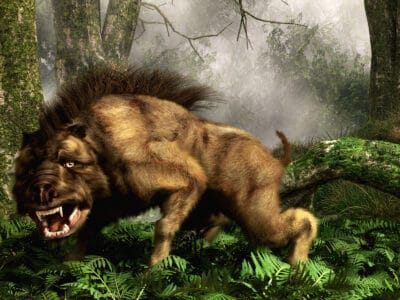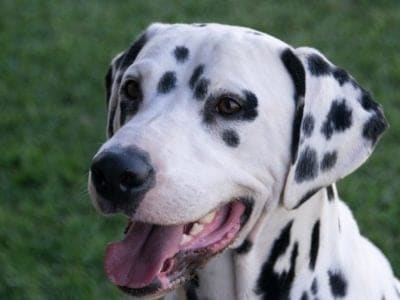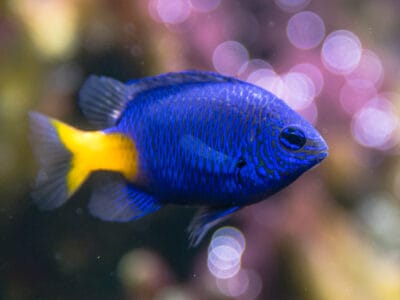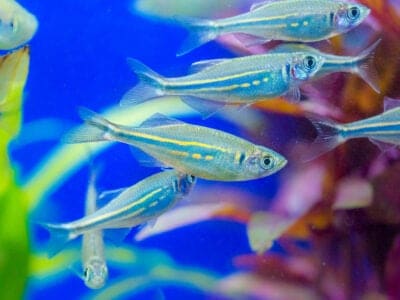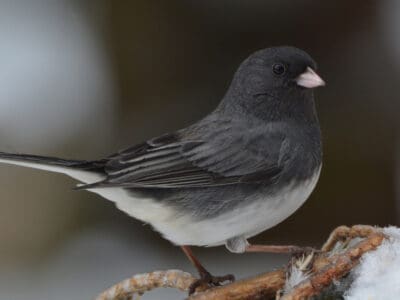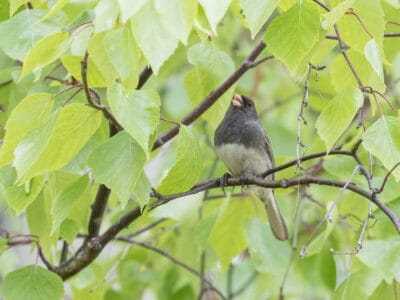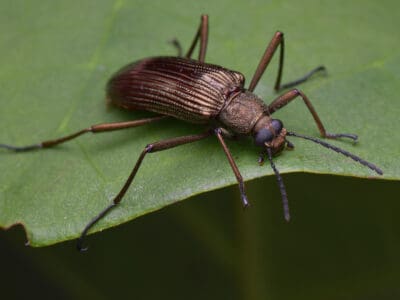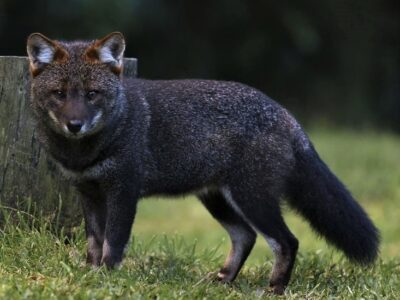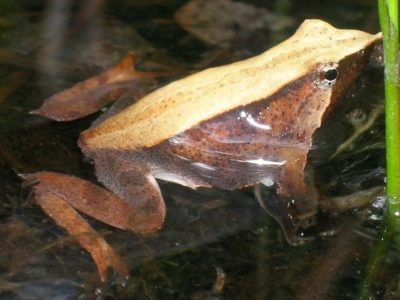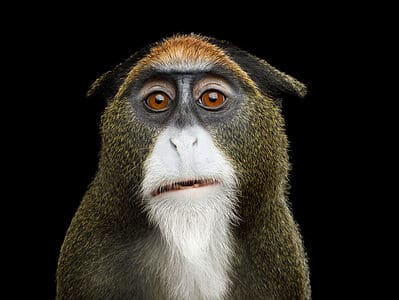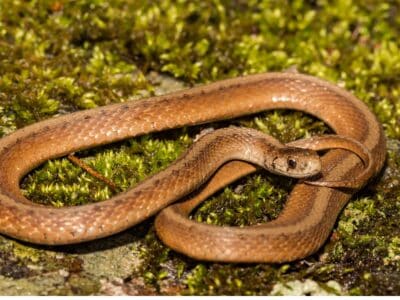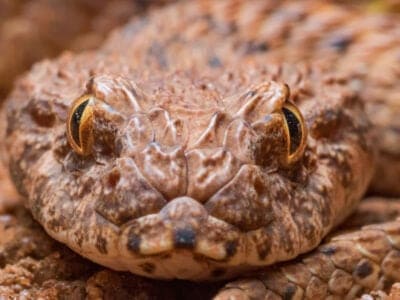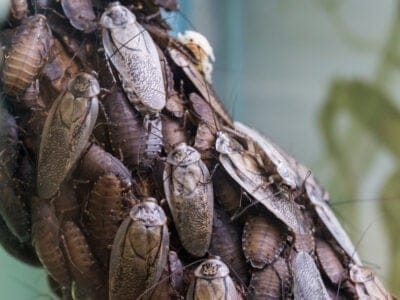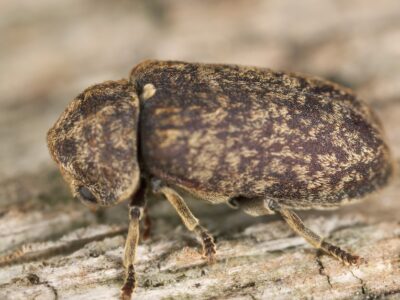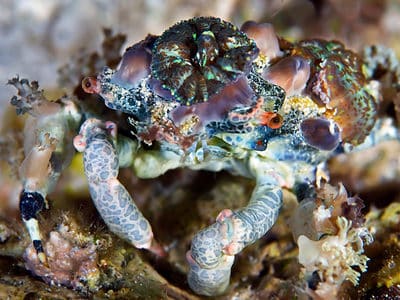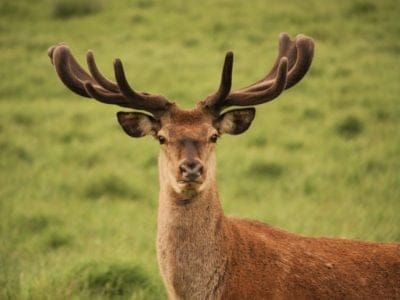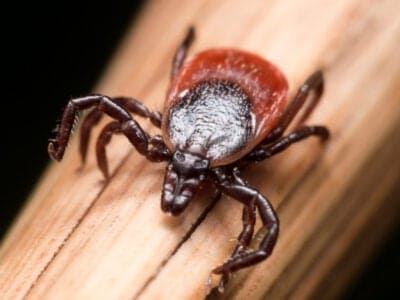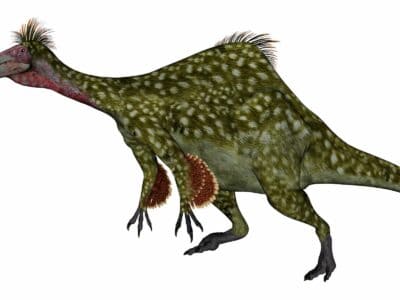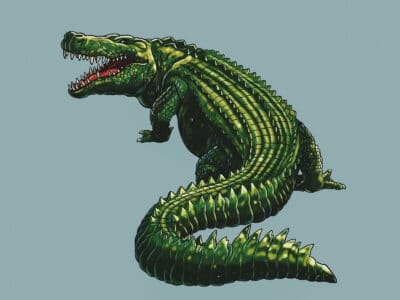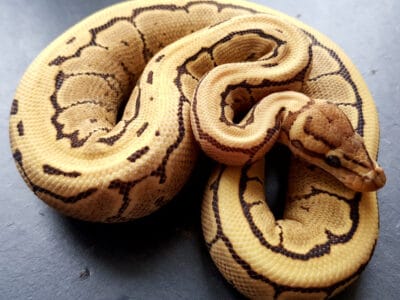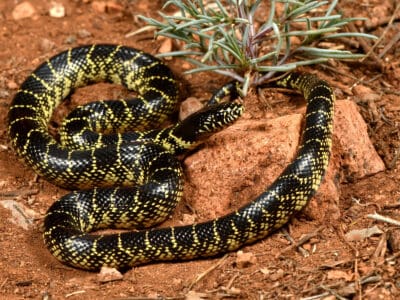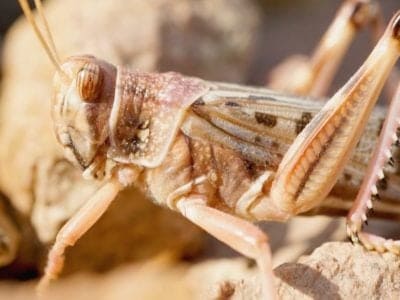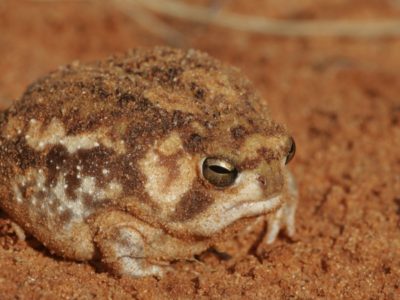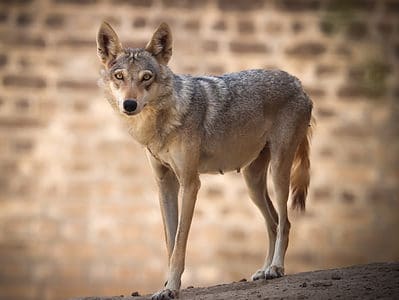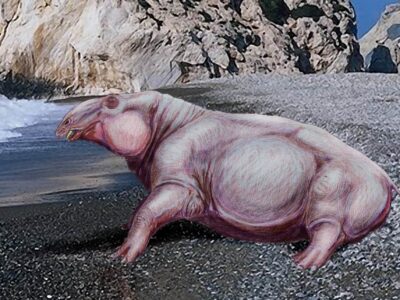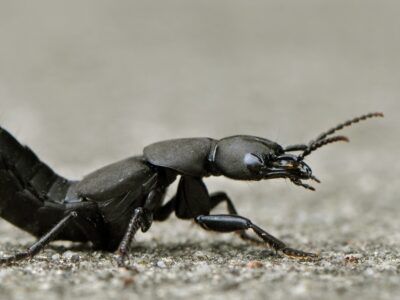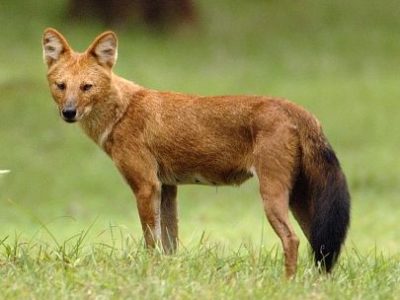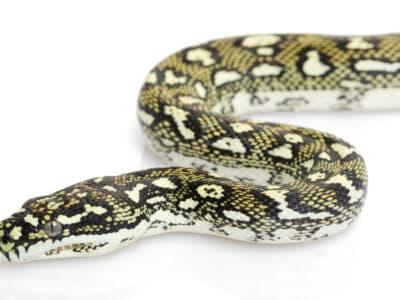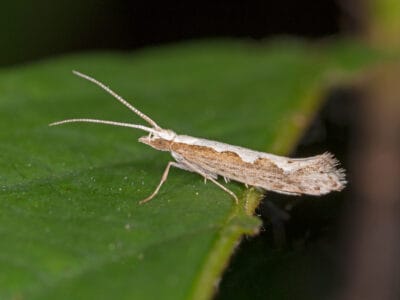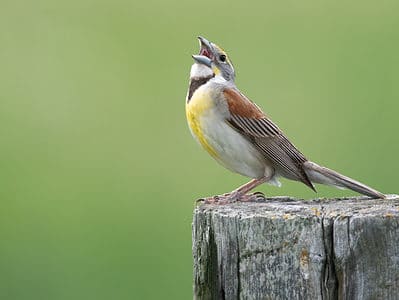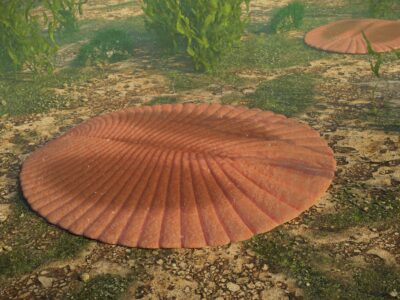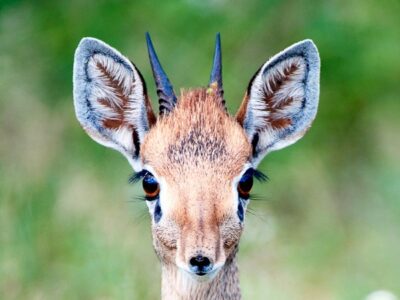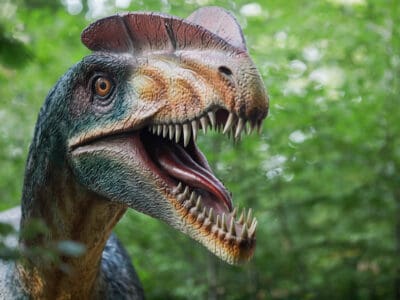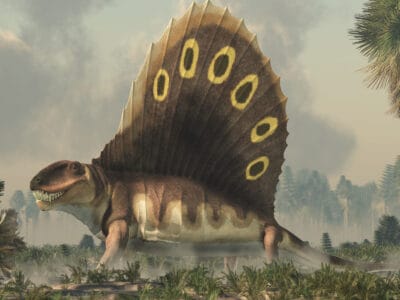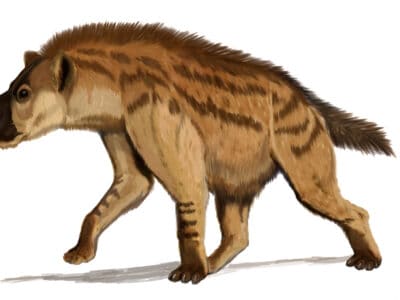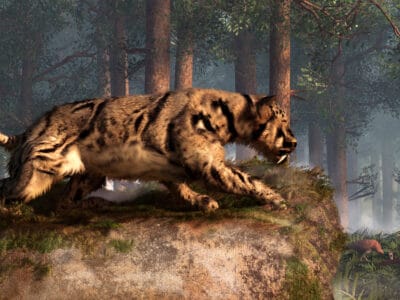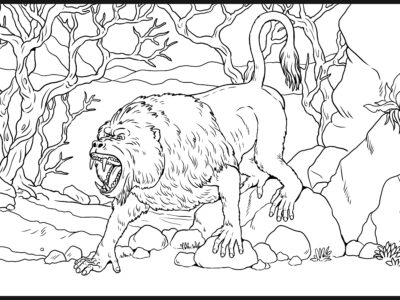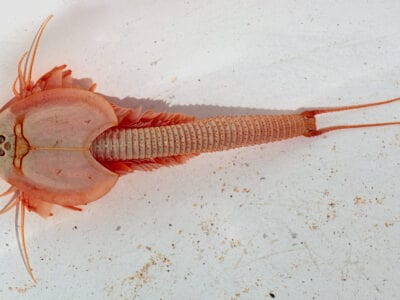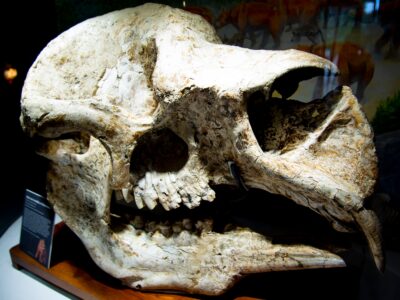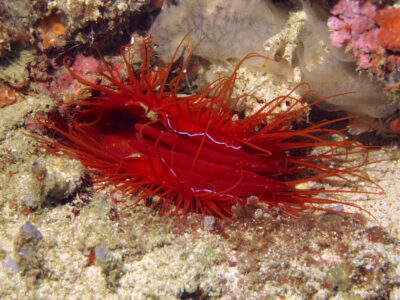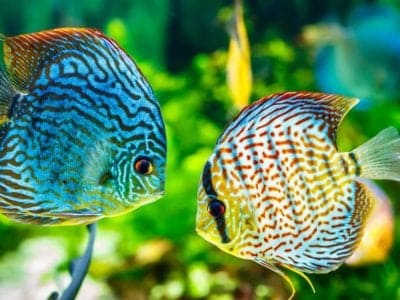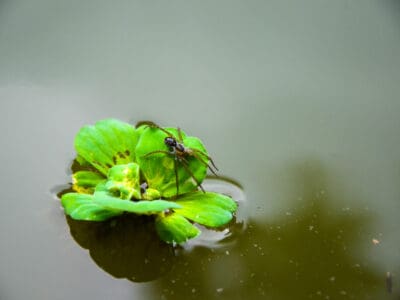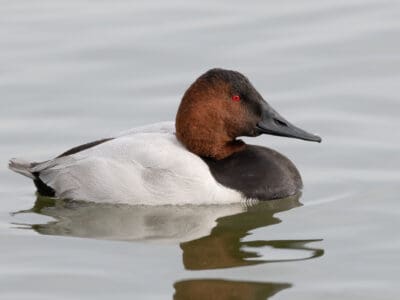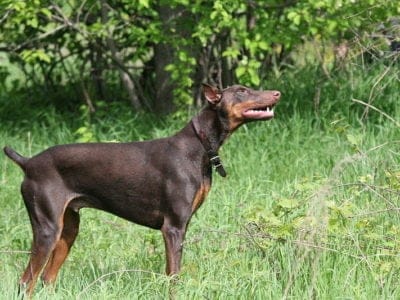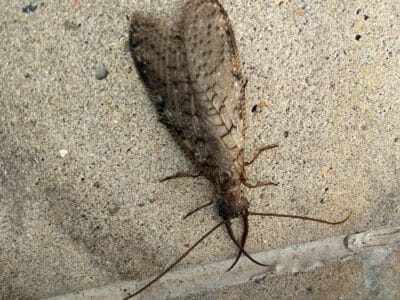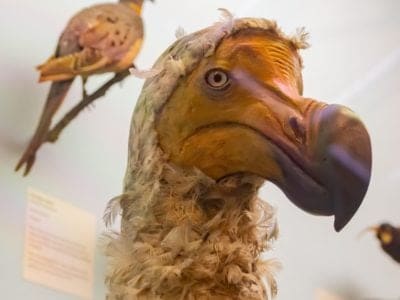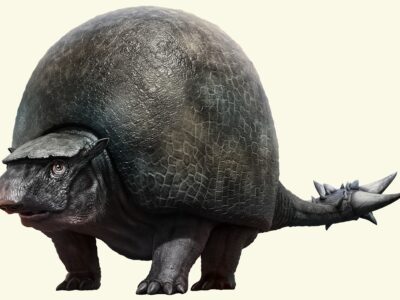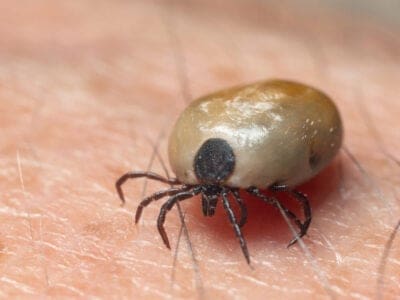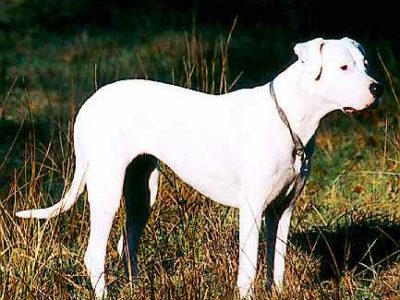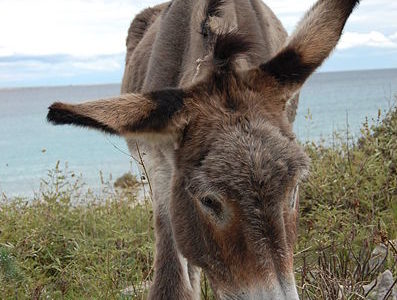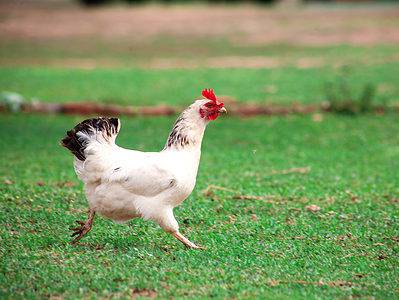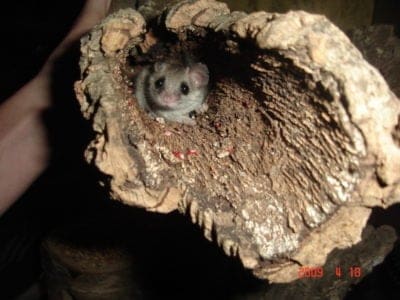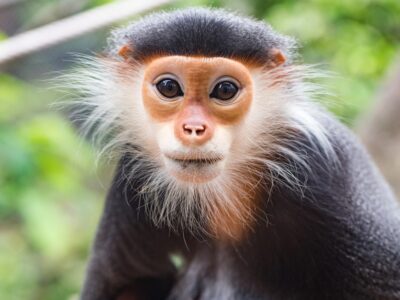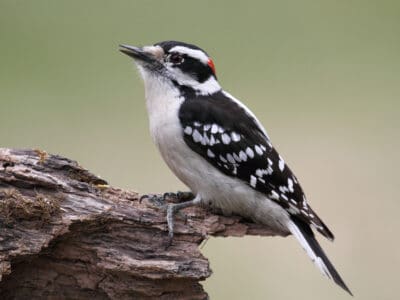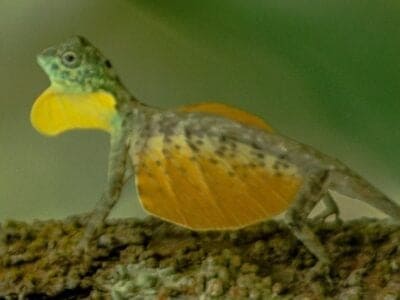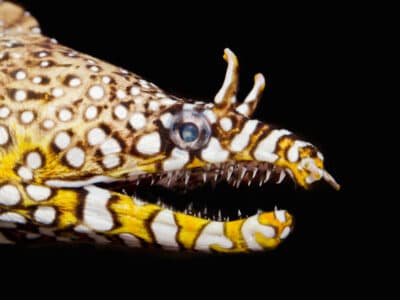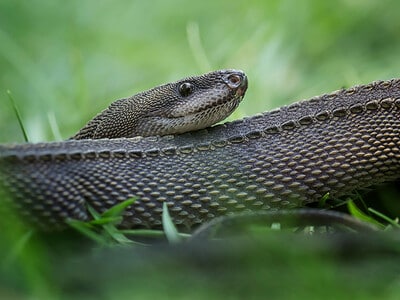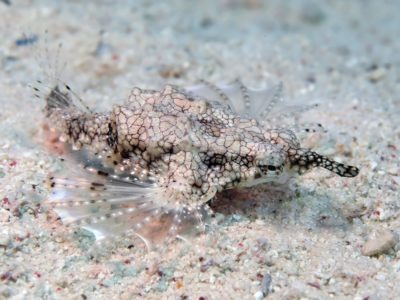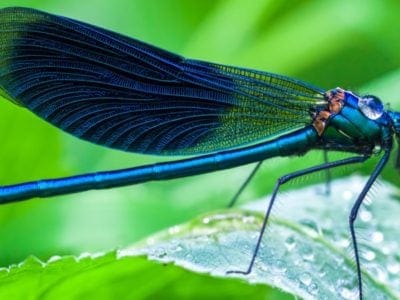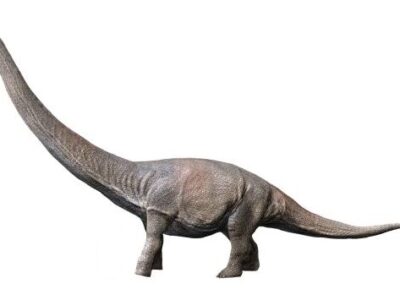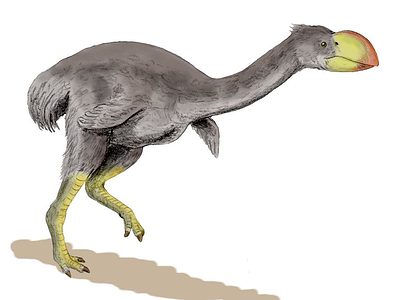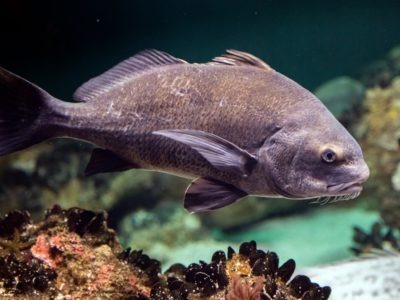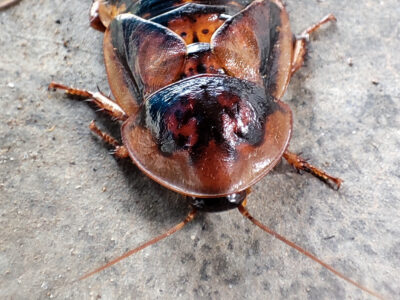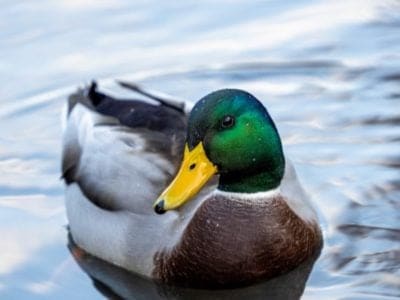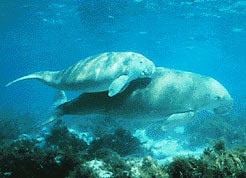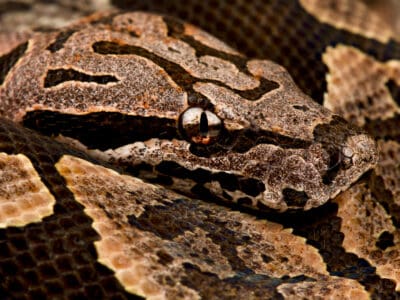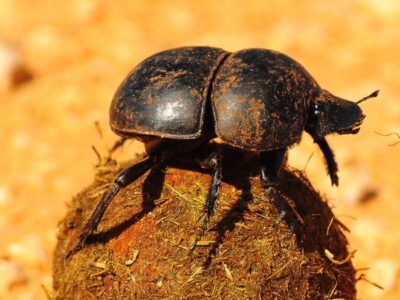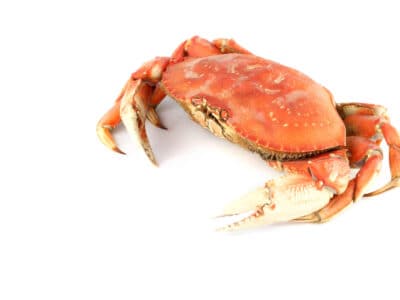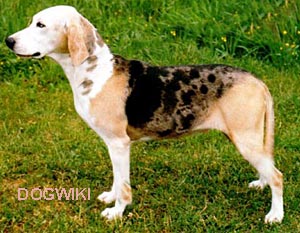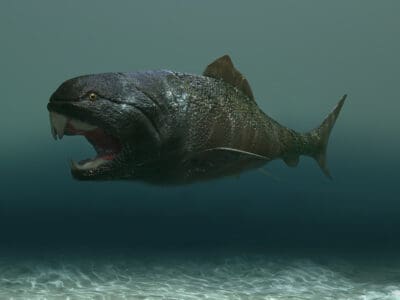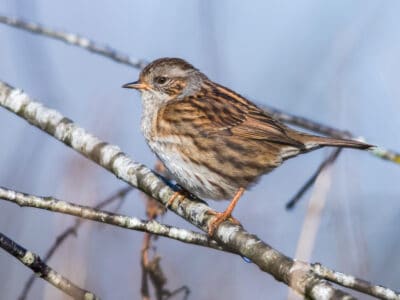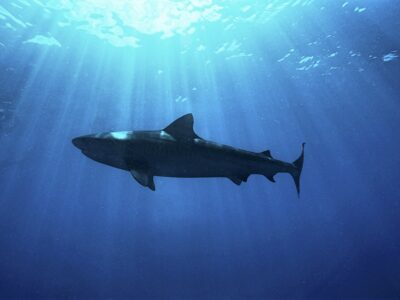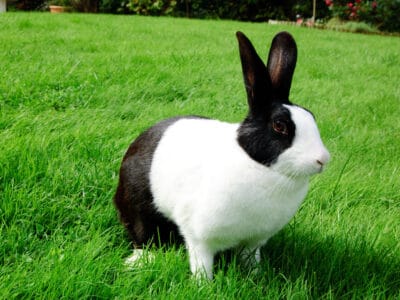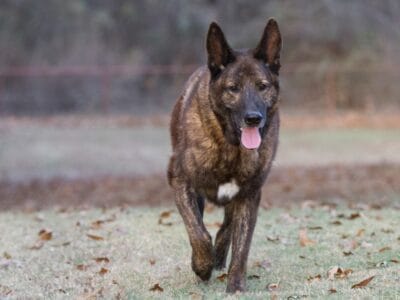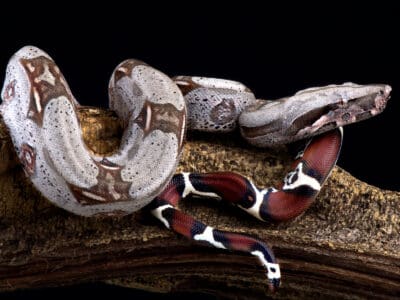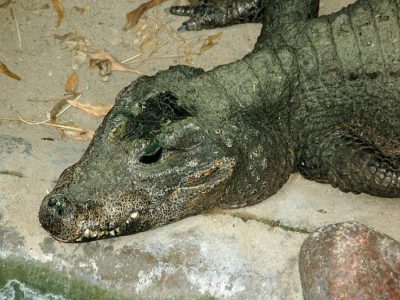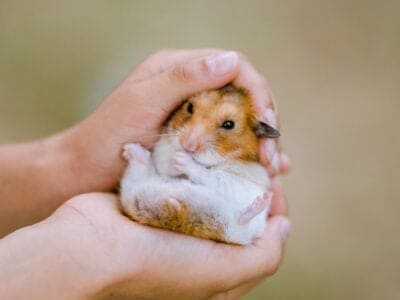Read below for information on 110 different animals that start with the letter D, from darwin’s frog to dwarf crocodile. The most popular animal that starts with D is The dodo, an extinct medium sized flightless bird first discovered in the 1590’s. The least popular is the desert tortoise. Some fun facts about D name animals include:
- A desert tortoise can go a whole year without drinking water
- Donkey’s were first domesticated 5,000 years ago
- Dragonflies are the world’s most accurate and deadly hunter, catching more than 95% of prey
Jump to any letter
List of Animals That Start with D
- Dachsador
- Dachshund
- Dachshund Mix
- Daeodon
- Dalmadoodle
- Dalmador
- Dalmatian
- Dalmatian Mix
- Damselfish
- Dandie Dinmont Terrier
- Daniff
- Danios
- Danish Swedish Farmdog
- Dapple Dachshund
- Dark-Eyed Junco
- Dark-Eyed Junco
- Darkling Beetle
- Darwin’s fox
- Darwin’s Frog
- Daug
- De Brazza’s Monkey
- De Kay’s Brown Snake
- Death Adder
- Death’s Head Cockroach
- Deathwatch Beetle
- Decorator Crab
- Deer
- Deer Head Chihuahua
- Deer Mouse
- Deer Tick
- Deinocheirus
- Deinosuchus
- Desert Ghost Ball Python
- Desert Kingsnake
- Desert Locust
- Desert Rain Frog
- Desert Tortoise
- Desert Wolf
- Desmostylus
- Deutsche Bracke
- Devil’s Coach Horse Beetle
- Devon Rex
- Dhole
- Diamond Python
- Diamondback Moth
- Dickcissel
- Dickinsonia
- Dik-Dik
- Dilophosaurus
- Dimetrodon
- Diminutive Woodrat
- Dingo
- Dinocrocuta
- Dinofelis
- Dinopithecus
- Dinosaur Shrimp
- Dinosaurs
- Diplodocus
- Diprotodon
- Dire Wolf
- Disco Clam
- Discus
- Diving Bell Spider (Water Spider)
- Diving Duck
- Doberman Pinscher
- Dobsonfly
- Dodo
- Doedicurus
- Dog
- Dog Tick
- Dogo Argentino
- Dogue De Bordeaux
- Dolphin
- Donkey
- Dorgi
- Dorkie
- Dorking Chicken
- Dormouse
- Double Doodle
- Douc
- Downy Woodpecker
- Doxiepoo
- Doxle
- Draco Volans Lizard
- Dragon Eel
- Dragon Snake (Javan Tubercle Snake, Javan Mudsnake)
- Dragonfish
- Dragonfly
- Dreadnoughtus
- Drever
- Dried Fruit Moth
- Dromornis stirtoni
- Drum Fish
- Dubia Cockroach
- Duck
- Dugong
- Dumeril’s Boa
- Dung Beetle
- Dungeness Crab
- Dunker
- Dunkleosteus
- Dunnock
- Dusky Dolphin
- Dusky Shark
- Dutch Rabbit
- Dutch Shepherd
- Dwarf Boa
- Dwarf Crocodile
- Dwarf Gourami
- Dwarf Hamster
Animals that Start with D
Dachsador
- Kingdom
- Animalia
- Phylum
- Chordata
- Class
- Mammalia
- Order
- Carnivora
- Family
- Canidae
- Genus
- Canis
- Scientific Name
- Canis lupus
Fun Fact: This hybrid dog is also known as a Doxador or a Weinerdor.
If the Dachsador has inherited certain traits from its Lab parent, like the water-repellent coat, extra feet webbing, and love of water, then it could make for an excellent swimmer. The Dachsador is a mixed breed dog believed to have originated during the last few decades. This breed combines the bravery and boldness of the […] Read More
Dachshund
- Kingdom
- Animalia
- Phylum
- Chordata
- Class
- Mammalia
- Order
- Carnivora
- Family
- Canidae
- Genus
- Canis
- Scientific Name
- Canis lupus
Fun Fact: Fun and playful breed of small dog!
The doxie, or dachshund, is a scent hound bred to hunt badgers, foxes, rabbits, and other tunneling animals. They were known at one time to trail wild boar when trained by hunters. This versatile breed is a great family pet, small-game hunter, and even an excellent show dog. Single-colored Smooth and Longhaired dachshunds tend to […] Read More
Dachshund Mix
- Kingdom
- Animalia
- Phylum
- Chordata
- Class
- Mammalia
- Order
- Carnivora
- Family
- Canidae
- Genus
- Canis
- Scientific Name
- Canis lupus
Fun Fact: This Dachshund mix is generally not suited for multi-pet homes because of their high prey drive.
The Dachshund is a charismatic little dog, originally bred in Germany to hunt badgers. In fact, that’s precisely what their name means, “Dachs” means badger in German, and “hund” stands for dog. Due to their small size, these pups have become very trendy in recent years, as they are the perfect pets for apartment living, […] Read More
Daeodon
- Kingdom
- Animalia
- Phylum
- Chordata
- Order
- Mammalia
- Family
- Entelodontidae
- Genus
- Daedon
- Scientific Name
- Daedon shoshonesis
Fun Fact: Scientists don't know whether daedon had scales, feathers, fur, or something else.
Prehistoric pigs like the Daeodon looked nothing like the farmyard pigs we know today. The Daeodon lived during the Oligocene and Miocene epochs, around 23-20 million years ago. It was much larger than modern-day pigs and not actually related to them at all. Instead, it is more closely related to hippos. Learn more about these […] Read More
Dalmadoodle
- Kingdom
- Animalia
- Phylum
- Chordata
- Class
- Mammalia
- Order
- Carnivora
- Family
- Canidae
- Genus
- Canis
- Scientific Name
- Canis lupus
Fun Fact: Dalmatians were originally bred to run alongside carriages, and their dalmadoodle descendents have the same long legs and high energy.
Dalmadoodles are working dogs that love having something to do. Whether you train your dalmadoodle to be like its carriage-following Dalmatian ancestors or its rabbit-hunting poodle ancestors, be sure to give your dalmadoodle plenty of small jobs to make it feel useful and loved. What do you get when you cross a Dalmatian with a […] Read More
Dalmador
- Kingdom
- Animalia
- Phylum
- Chordata
- Class
- Mammalia
- Order
- Carnivora
- Family
- Canidae
- Genus
- Canis
- Scientific Name
- Canis lupus
Fun Fact: Dalmador breeding skyrocketed after the 16 release of the live-action 101 Dalmatians movie.
Dalmadors are loyal dogs that are excited to explore the world. Take your dalmador on plenty of walks; it needs the exercise, and it will love to see what’s outside your front door. When you combine the spots of a a Dalmatian with the friendly temperament of a Labrador retriever, you get the charming working […] Read More
Dalmatian
- Kingdom
- Animalia
- Phylum
- Chordata
- Class
- Mammalia
- Order
- Carnivora
- Family
- Canidae
- Genus
- Canis
- Scientific Name
- Canis lupus
Fun Fact: Have an energetic and playful nature!
A Dalmatian’s white coat with black spots makes it immediately recognizable. This breed is known for its sensitive temperament and high energy level. It belongs to the non-sporting group. One of the lesser-known facts about this dog breed is it got its name from a coastal area in Austria called Dalmatia. Descended from pointers, Dalmatians […] Read More
Dalmatian Mix
- Kingdom
- Animalia
- Phylum
- Chordata
- Class
- Mammalia
- Order
- Carnivora
- Family
- Canidae
- Genus
- Canis
- Scientific Name
- Canis familiaris
Fun Fact: These canine’s spots are distinctive in their placement, including different shaped markings, making them unique.
Dalmatian mix breeds vary from medium to large dogs, displaying a unique spotted coat. This canine has a playful nature followed by a very energetic personality, making a great companion for anyone looking for an affectionate and loyal friend. This breed of dog loves to go for walks as they explore their surroundings and look […] Read More
Damselfish
- Kingdom
- Animalia
- Phylum
- Chordata
- Class
- Actinopterygii
- Order
- Perciformes
- Family
- Pomacentridae
Fun Fact: Damselfish belong to the family Pomacentridae
Damselfish Summary Damselfish are any of approximately 420 species within the family Pomacentridae. They mainly inhabit the tropical and temperate waters of the Atlantic, Indian, and Pacific Oceans. Despite being territorial, their flashy colors and patterns make them popular aquarium pets. In addition to this, they are incredibly hardy fish that can endure a range […] Read More
Dandie Dinmont Terrier
- Kingdom
- Animalia
- Phylum
- Chordata
- Class
- Mammalia
- Order
- Carnivora
- Family
- Canidae
- Genus
- Canis
- Scientific Name
- Canis lupus
Fun Fact: The Dandie Dinmont Terrier is the only breed recognized by the AKC that is named after a literary character.
Introduction The Dandie Dinmont Terrier is a feisty little dog with enough attitude for a dog three times its size. Bred in Scotland in the 17th or 18th centuries to hunt otters, foxes, rats, and badgers, the Dandie is loyal to its owner but has a strong independent streak, giving it a friendly but stubborn […] Read More
Daniff
- Kingdom
- Animalia
- Phylum
- Chordata
- Class
- Mammalia
- Order
- Carnivora
- Family
- Canidae
- Genus
- Canis
- Scientific Name
- Canis lupus familiaris
Fun Fact:
“The ancestors of this breed were used as war dogs by the Mongolian leader Kublai Khan.” Daniff Introduction The Daniff is a recent American mixture of two large breed dogs, the great Dane and the mastiff, breeds with ancient origins in Tibet and the Middle East. The original breeds were developed for hunting large game […] Read More
Danios
- Kingdom
- Animalia
- Phylum
- Chordata
- Class
- Actinopterygii
- Order
- Cypriniformes
- Family
- Cyprinidae
- Genus
- Danio
- Scientific Name
- Danio rerio
Fun Fact: These fish make a popular choice for aquarium hobbyists due to their hardy nature.
“Danios make a popular choice for aquarium hobbyists due to their hardy nature.“ Danios come in many types and colors, but the common attribute across the species is their size, hardiness, and active swimming style. They tolerate a wide range of water conditions and are good eaters. One thing to keep in mind is that […] Read More
Danish Swedish Farmdog
- Kingdom
- Animalia
- Phylum
- Chordata
- Class
- Mammalia
- Order
- Carnivora
- Family
- Canidae
- Genus
- Canis
- Scientific Name
- Canis lupus familiaris
Fun Fact:
“If you want a friendly little dog that loves to play and cuddle, this is the breed for you.” Danish Swedish Farmdog Introduction The Danish Swedish farmdog is a small breed that is indigenous, as its name implies, to Denmark and Sweden. Although they are often mistaken for the Jack Russell terrier or similar breeds, […] Read More
Dapple Dachshund
- Kingdom
- Animalia
- Phylum
- Chordata
- Class
- Mammalia
- Order
- Carnivora
- Family
- Canidae
- Genus
- Canis
- Scientific Name
- Canis lupus
Fun Fact: A Dapple Dachshund’s dappling pattern may be just one spot, or it may be numerous spots and splashes on their coat.
A Dapple Dachshund’s dappling pattern may be just one spot or it may be numerous spots and splashes on their coat These Dachshunds are really just Dachshund with a special coat pattern. The pattern is called a dappling pattern, and it appears as lighter markings against a darker based coat color. The reason some Dachshunds […] Read More
Dark-Eyed Junco
- Kingdom
- Animalia
- Phylum
- Chordata
- Order
- Passeriformes
- Family
- Passerellidae
- Genus
- Junco
Fun Fact: They are called snowbirds because many subspecies reappear in the winter.
The Dark-Eyed Junco is also known as the Snowbird in the United States. They’re in the sparrow family, and the resemblance is clear, though they’re smaller than most sparrows. It has an extensive list of sub-species found in various regions and their range of colors is quite diverse as well. You would find them in […] Read More
Dark-Eyed Junco
- Kingdom
- Animalia
- Phylum
- Chordata
- Class
- Aves
- Order
- Passeriformes
- Family
- Passerellidae
- Genus
- Junco
- Scientific Name
- Junco Hyemalis
Fun Fact:
Summary This forest bird, the Dark-Eyed Junco, is one of the most abundant in North America. The Dark-Eyed Junco is a small sparrow that is the most abundant forest bird in North America. While its body coloring can vary depending on the sub-species and region, they have distinctive bright white tail feathers that can be […] Read More
Darkling Beetle
- Kingdom
- Animalia
- Phylum
- Arthropoda
- Class
- Insecta
- Order
- Coleoptera
- Family
- Tenebrionidae
Fun Fact: Darkling Beetles have segmented antennae. Each one is divided into eleven segments.
The Darkling Beetle family has over 20,000 members! That’s right, the Darkling Beetle family is vast but they all share a few physical characteristics. They can be found on almost every continent and in environments from humid to dry, although most do favor dark and dry places. Called Darkling Beetles because they are most active […] Read More
Darwin’s fox
- Kingdom
- Animalia
- Phylum
- Chordata
- Class
- Mammalia
- Order
- Carnivora
- Family
- Canidae
- Genus
- Lycalopex
- Scientific Name
- Lycalopex fulvipes
Fun Fact: It’s not a “true fox.”
“Darwin’s Fox is one of the world’s littlest foxes” There are two populations of Darwin’s fox. The location of the first population is an island off the coast of Chile, and the other lives in a few locations on the mainland. The fox lives its rather secretive life in the temperate forests of these places. […] Read More
Darwin’s Frog
- Kingdom
- Animalia
- Phylum
- Chordata
- Class
- Amphibia
- Order
- Anura
- Family
- Rhinodermatidae
- Genus
- Rhinoderma
- Scientific Name
- Rhinoderma Darwinii
Fun Fact: Camouflages itself as a dead leaf!
The unique carnivorous Darwin’s frog carries tadpoles in its vocal sac for up to 70 days! Darwin’s frog is native to streams and forests of Chile and Argentina. This tiny frog species gets its name after explorer Charles Darwin. He discovered the frog during his famous “Voyage of the Beagle” from February 1832 to September 1835. Darwin’s […] Read More
Daug
- Kingdom
- Animalia
- Phylum
- Chordata
- Class
- Mammalia
- Order
- Carnivora
- Family
- Canidae
- Genus
- Canis
- Scientific Name
- Canis lupus
Fun Fact: Because the Daug is so rare, they fetch a pretty penny. Dog lovers can pay up to $3,000 for one of these pups!
The Daug is an adorable hybrid resulting from crossbreeding a Dachshund and a Pug. These dogs are laidback, affectionate, and make great additions to families looking for a companion. However, because the Daug can inherit traits and features from either parent breed, it’s hard to say what they will look like or which temperament they […] Read More
De Brazza’s Monkey
- Kingdom
- Animalia
- Phylum
- Chordata
- Class
- Mammalia
- Order
- Primates
- Family
- Cercopithecidae
- Genus
- Cercopithecus
- Scientific Name
- Cercopithecus neglectus
Fun Fact: They forage on plants and fruits and act as seed dispersers, helping their environment.
“De Brazza’s get their name from their cryptic nature, often hiding from predators and humans.” Summary The de Brazza’s monkey (Cercopithecus neglectus) is a large guenon primate endemic to Central Africa. They inhabit swamps and mountain forests, where they spend most of their time in trees in small groups. Their names are Italian for “pay […] Read More
De Kay’s Brown Snake
- Kingdom
- Animalia
- Phylum
- Chordata
- Class
- Reptilia
- Order
- Squamata
- Family
- Colubridae
- Genus
- Storeria
- Scientific Name
- Storeria dekayi
Fun Fact: They have specialized jaws for removing snails from shells.
De Kay’s brown snake is widespread across the eastern half of North America and Central America. It’s nonvenomous and generally very docile but spends most of its time underground or in otherwise shady locations. This snail and slug-eating snake prefers moist areas near its favorite prey, where people often find them. Incredible Facts Zoologist James […] Read More
Death Adder
- Kingdom
- Animalia
- Phylum
- Chordata
- Class
- Reptilia
- Order
- Squamata
- Family
- Elapidae
- Genus
- Acanthophis
- Scientific Name
- Acanthophis antarcticus
Fun Fact: The Death Adder is more closely related to the Cobra than other Australian snakes.
“The Death Adder is more closely related to the Cobra than other Australian snakes.” Also known as the Common Death Adder, this species is native to eastern and southern Australia, as well as Papua New Guinea. The species avoids desert areas but is plentiful in wooded or grassy areas. These reptiles are quite adept at […] Read More
Death’s Head Cockroach
- Kingdom
- Animalia
- Phylum
- Arthropoda
- Class
- Insecta
- Order
- Blattodae
- Family
- Blaberidae
- Genus
- Blaberus
- Scientific Name
- Blaberus craniifer
Fun Fact: People buy Death's Head Cockroach nymphs and raise them as pets!
Death’s Head Cockroach Summary “This cockroach is often kept as a pet.” The Death’s Head Cockroach is a large winged insect which is native to Mexico , the West Indies, and Central America. It has also been introduced into Florida . There is a small black patch on their head that looks like a “Death’s […] Read More
Deathwatch Beetle
- Kingdom
- Animalia
- Phylum
- Arthropoda
- Class
- Insecta
- Order
- Coleoptera
- Family
- Ptinidae
- Genus
- Xestobium
- Scientific Name
- Xestobium rufovillosum
Fun Fact: The adult deathwatch beetle taps on the wood to find a mate.
The deathwatch beetle is a wood-boring insect that can infest wooden buildings and become an annoying pest. It can feed on all kinds of different wood, but old oak appears to be one of its favorite potential hosts. The deathwatch beetles were once considered to be signs of an ill omen and a portent of […] Read More
Decorator Crab
- Kingdom
- Animalia
- Phylum
- Arthropoda
- Class
- Malacostraca
- Order
- Decapoda
- Family
- Majoidea
Fun Fact: Recycle old decorations when they molt
Summary One of nature’s most ingenious disguise artists, decorator crabs belong to the superfamily Majoidea. Sometimes also known as spider crabs, approximately 75% of the species in the family decorate their shells and legs with plants and animals to help them avoid and ward off predators. They live all over the world and thrive as […] Read More
Deer
- Kingdom
- Animalia
- Phylum
- Chordata
- Class
- Mammalia
- Order
- Artiodactyla
- Family
- Cervidae
- Scientific Name
- Odocoileus virginiana
Fun Fact: There are around 40 different species!
Foraging languidly among forests and plains, the deer is one of the most familiar and recognizable sights in all of nature. The deer is an animal that has proliferated across the globe and evolved many adaptations to help it cope with the rigors of a hostile world. Its regal antlers are some of the most […] Read More
Deer Head Chihuahua
- Kingdom
- Animalia
- Phylum
- Chordata
- Class
- Mammalia
- Order
- Carnivora
- Family
- Canidae
- Genus
- Canis
- Scientific Name
- Canis lupus
Fun Fact: The Chihuahua is the smallest dog breed in the world.
The Deer Head Chihuahua is named after the Mexican state from which it originated. The Chihuahua may be among the smallest of all dogs, but its big, charming personality and striking features have made it a symbol of an entire country and one of the most popular breeds around the world. Originally descending from an […] Read More
Deer Mouse
- Kingdom
- Animalia
- Phylum
- Chordata
- Class
- Mammalia
- Order
- Rodentia
- Family
- Cricetidae
- Genus
- Peromyscus
Fun Fact: Roughly 60 different species of deer mice range from Canada to Central America!
Roughly 60 different species of deer mice range from Canada to Central America! Deer mice are quite common throughout North America and Central America. They look very similar to the common house mouse, but instead of being uniformly colored, deer mice usually have white or light-colored undersides and light colored or naked feet. They belong […] Read More
Deer Tick
- Kingdom
- Animalia
- Phylum
- Arthropoda
- Class
- Arachnida
- Order
- Idodida
- Family
- Ixodidae
- Genus
- Ixodes
- Scientific Name
- Ixodes scapularis
Fun Fact: Commonly found on white-tailed deer
“Because of their dark-colored legs, deer ticks are often called black-legged ticks.” Out of all the ticks native to North America, the deer tick is one of the most problematic. Ticks have been around for a very long time, over 100 million years. Today, there are more than 900 distinct species of ticks living on […] Read More
Deinocheirus
- Kingdom
- Animalia
- Phylum
- Chordata
- Family
- Deinocheiridae
- Genus
- Deinocheirus
- Scientific Name
- Deinocheirus mirificus
Fun Fact: Despite being bipedal, Deinocheirus had a large forearm
Deinocheirus was a bizarre dinosaur that lived in Asia during the Late Cretaceous around 70 million years ago. For up to 50 years after its first discovery, scientists struggled to determine its appearance or habits. You can compare this dinosaur to a giant goose because of its beaked head, a camel because of its hump, […] Read More
Deinosuchus
- Kingdom
- Animalia
- Phylum
- Chordata
- Class
- Reptilia
- Order
- Crocodilia
- Family
- Alligatoroidea
- Genus
- Deinosuchus
- Scientific Name
- Deinosuchus hatcheri
Fun Fact: Deinosuchus was probably the biggest crocodilian that ever lived
Deinosuchus is an extinct crocodyliform that was closely related to crocodiles and alligators. This extinct reptile lived during the Cretaceous era 82-73 million years ago. It lived alongside many giant animals, including dinosaurs, giant sharks, and marine reptiles like mosasaurs. This 33-foot-long alligator lived in North America and was one of the most formidable carnivores […] Read More
Desert Ghost Ball Python
- Kingdom
- Animalia
- Phylum
- Chordata
- Class
- Reptilia
- Order
- Squamata
- Family
- Pythonidae
- Genus
- Python
- Scientific Name
- Python regius
Fun Fact: Desert ghost ball pythons are even more beautiful when they're bred with another type like enchi ball pythons.
Desert ghost ball pythons are beautiful, but when bred to other ball python morphs, they make everything even more beautiful. These snakes were first produced in 2003 and since then have found their way into many different ball pythons morphs because of their ability to improve and clarify patterns and colors. Desert ghost ball pythons […] Read More
Desert Kingsnake
- Kingdom
- Animalia
- Phylum
- Chordata
- Class
- Reptilia
- Order
- Squamata
- Family
- Colubridae
- Genus
- Lampropeltis
- Scientific Name
- Lampropeltis splendida
Fun Fact: The desert kingsnake rolls over and plays dead when it feels threatened.
The desert kingsnake is only found in the United States. Featuring a black or brown body with light-colored speckles all over it, the desert kingsnake may look intimidating, but it is one of the friendliest species around with no teeth and no venom. Plus, they won’t attack if they are afraid! Instead, they’ll roll over […] Read More
Desert Locust
- Kingdom
- Animalia
- Phylum
- Arthropoda
- Class
- Insecta
- Order
- Orthoptera
- Family
- Acrididae
- Genus
- Schistocerca
- Scientific Name
- Schistocerca gregaria
Fun Fact: Solitary locusts are grey while gregarious locusts are yellow with stripes.
“Desert locusts are tenacious insects that can eat anything and repopulate in massive numbers.” The desert locust has lived in the dry and arid parts of the world for as long as humans can remember. These hardy insects consume vegetation equal to their body weight on a daily basis. When in solitary mode, desert locusts […] Read More
Desert Rain Frog
- Kingdom
- Animalia
- Phylum
- Chordata
- Class
- Amphibia
- Order
- Anura
- Family
- Brevicipitidae
- Genus
- Breviceps
- Scientific Name
- Breviceps macrops
Fun Fact: The desert rain frog doesn't hop
With its dog chew toy-like squealing sound of defense, the desert rain frog is a bug-eyed wonder with a transparent layer of skin that actually exposes its organs. The desert rain frog species are found in South Africa and Namibia. Its ecosystem is a narrow strip of sandy shores between the sea and the sand […] Read More
Desert Tortoise
- Kingdom
- Animalia
- Phylum
- Chordata
- Class
- Reptilia
- Order
- Testudines
- Family
- Testudinidae
- Genus
- Gopherus
- Scientific Name
- Gopherus Agassizii
Fun Fact: Lives in burrows underground!
“A desert tortoise can live to be over 80 years old!” Desert tortoises are found in the United States and in Mexico. These tortoises burrow tunnels so they can go underground to cool off when the desert heat gets to be too much. The California desert tortoise eats grasses, flowers, and herbs found in their […] Read More
Desert Wolf
- Kingdom
- Animalia
- Phylum
- Chordata
- Class
- Mammalia
- Order
- Carnivora
- Family
- Canidae
- Genus
- Canis
- Scientific Name
- Canis lupus arabs
Fun Fact: These tiny wolves prefer to cohabitate in pairs or groups of three (generally two males and a female).
The desert wolf is the smallest subspecies of the gray wolf family, commonly referred to as the Arabian wolf. These scrappy canines originate from the Arabian Peninsula but also occur in various regions of northern Asia. While they share many traits with their bigger cousin, Arabian wolves differ in a few notable ways. For example, […] Read More
Desmostylus
- Kingdom
- Animalia
- Phylum
- Chordata
- Class
- Mammalia
- Order
- Desmostylia
- Family
- Desmostylidae
- Genus
- Desmostylus
- Scientific Name
- Desmostylus japonicus
Fun Fact: Desmostylus has no living descendant.
Desmostylus is an extinct genus of herbivorous mammals that lived from the Late Oligocene to the Miocene. This massive and heavily built marine creature belongs to the family Desmostylidae. It was a peculiar animal with an interesting appearance and no living descendants. This makes it difficult to trace its lineage or describe many of its […] Read More
Deutsche Bracke
- Kingdom
- Animalia
- Phylum
- Chordata
- Class
- Mammalia
- Order
- Carnivora
- Family
- Canidae
- Genus
- Canis
- Scientific Name
- Canis Lupus
Fun Fact: Has long drop ears and a long narrow tail!
The Deutsche Bracke is a mid-size breed with a tricolor coat and a long tail. They are scenthounds that originated in Westphalia, Germany in the 18th century. In 1896, all the different types of Bracke dogs (scenthounds) in Germany were merged into one breed that was named the Deutsche Bracke. Deutsche Brackes have also been […] Read More
Devil’s Coach Horse Beetle
- Kingdom
- Animalia
- Phylum
- Arthropoda
- Class
- Insecta
- Order
- Coleoptera
- Family
- Staphylinidae
- Genus
- Ocypus
- Scientific Name
- Ocypus olens
Fun Fact: The Devil’s coach horse beetle can emit a noxious substance to deter predators
The Devil’s coach horse beetle has been associated unfairly with evil forces. In the Middle Ages, a superstition arose that the insect could curse a person just by pointing its tail in their direction. This strange superstition has given rise to the unusual name of Devil’s coach horse beetle (which brings to mind the image […] Read More
Devon Rex
- Kingdom
- Animalia
- Phylum
- Chordata
- Class
- Mammalia
- Order
- Carnivora
- Family
- Felidae
- Genus
- Felis
- Scientific Name
- Felis catus
Fun Fact:
The Devon Rex, which first arose from the town of Devon, England in the 1950s, has attracted a small but devoted following for its livewire personality and its distinctive appearance. Sporting a slender elf-like face and big ears that don’t seem to entirely fit, this cat is known for its intelligent mind and people-oriented behavioral […] Read More
Dhole
- Kingdom
- Animalia
- Phylum
- Chordata
- Class
- Mammalia
- Order
- Carnivora
- Family
- Canidae
- Genus
- Cuon
- Scientific Name
- Cuon alpinus
Fun Fact: Only 2,000 left in the wild!
“The dhole has been described as a mix between the gray wolf and the red fox” Also known as the ‘Asiatic Wild Dog’, Dholes are once a wide-ranging wild dog species that covered nearly half the globe. Today the dhole is an endangered species with an estimated population of fewer than 2,500 adults. Dholes are […] Read More
Diamond Python
- Kingdom
- Animalia
Fun Fact: These pythons live at higher altitudes and further south than any other python species.
The diamond python is a subspecies of carpet python that occurs in southeastern Australia near the coast. While its native environment includes forests with trees to climb, this semi-arboreal snake is often found near human settlements. It is versatile and found in attic crawl spaces and other rooftop locales slithering about looking for rats and […] Read More
Diamondback Moth
- Kingdom
- Animalia
- Phylum
- Arthropoda
- Class
- Insecta
- Order
- Lepidoptera
- Family
- Plutellidae
- Genus
- Plutetalla
- Scientific Name
- Plutella xylostella
Fun Fact: Adult males make high amplitude boing noise to attract females
The larvae of diamondback moths are voracious pests and are growing resistant to insecticides. Summary The diamondback moth is a small moth that is most popular as a pest of cruciferous vegetables. These insects commonly attack vegetables like cabbage, Brussels sprouts, broccoli, rutabaga, and cauliflower. Although they are small, they are usually quite numerous, causing […] Read More
Dickcissel
- Kingdom
- Animalia
- Phylum
- Chordata
- Class
- Aves
- Order
- Passeriformes
- Family
- Cardinalidae
- Genus
- Spiza
- Scientific Name
- Spiza americana
Fun Fact: They have a unique call that they are named for.
“The dickcissel is named for its song, which sounds like d’d’dick-ciss-ciss-ciss!” Summary The dickcissel is a small songbird native to the warm regions of the western hemisphere. It is a seed-eating bird that migrates with the seasons. Males and females have similar patterns on their plumage, however, the saturation of the colors may vary between […] Read More
Dickinsonia
- Kingdom
- Animalia
Fun Fact:
Introduction The Dickinsonia is an extinct genus of basal animal, and they lived during the Ediacaran period that lasted for 96 million years. You will find the Dickinsonia in the places we now know as China, India, Russia, Australia, and Ukraine and resembles a bilaterally symmetrical oval. The remains of this creature are in sandstone […] Read More
Dik-Dik
- Kingdom
- Animalia
- Phylum
- Chordata
- Class
- Mammalia
- Order
- Artiodactyla
- Family
- Bovidae
- Genus
- Madoqua
- Scientific Name
- Madoqua
Fun Fact: Dik-diks use a tar-like liquid from their eye glands to mark their territory!
The dik-dik gets its name from the whistling sound it makes with its nose. A dik-dik is a very small antelope. They are nocturnal and live in Africa. They have many predators and play an important part in the food chain. These animals absorb most of the water their bodies need from the plants they […] Read More
Dilophosaurus
- Kingdom
- Animalia
- Phylum
- Chordata
- Class
- Reptilia
- Order
- Saurischia
- Family
- Dilophosauridae
- Genus
- Dilophosaurus
- Scientific Name
- Dilophosaurus wetherilli
Fun Fact: Dilophosaurus was the largest predatory dinosaur in North America during the Early Jurassic Epoch of the Jurassic Period.
Fans of the Jurassic Park franchise would probably recognize the Dilophosaurus as the frilled dinosaur capable of spitting venom at its prey. However, the real-life version of this dinosaur was remarkably different from this. This theropod dinosaur lived in North America during the early Jurassic Period, about 193 million years ago. It was a voracious […] Read More
Dimetrodon
- Kingdom
- Animalia
- Phylum
- Chordata
- Family
- Sphenacodontidae
- Genus
- Dimetrodon
- Scientific Name
- Dimetrodon limbatus
Fun Fact: Dimetrodon was among the largest predators of the Early Permian Period.
Dimetrodon is an extinct, mammal-like animal that lived during the Early Permian Period, around 295–272 million years ago. Several ancient animal fossils have been discovered in the southwestern part of the US. Although it is commonly mistaken for a dinosaur, the Dimetrodon is older than the earliest dinosaurs by about 40 million years. Dimetrodon was an […] Read More
Diminutive Woodrat
- Kingdom
- Animalia
- Phylum
- Chordata
- Class
- Mammalia
- Order
- Rodentia
- Family
- Cricetidae
- Genus
- Nelsonia
- Scientific Name
- Nelsonia goldmani goldmani, Nelsonia goldmani cliftoni, Nelsonia neotomodon
Fun Fact: The presence of a Nelsonia tail in a tree indicates that these woodrats may be arboreal at times.
Though there are many species under the broad umbrella of “wood rat,” we will speak here of the genus Nelsonia (diminutive woodrat), which includes two species and one subspecies: the Western diminutive woodrat, Goldman’s diminutive woodrat, and a subspecies of Goldman’s woodrat discovered by Percy Clifton, Nelsonia goldmani cliftoni. These are distinct from the broader […] Read More
Dingo
- Kingdom
- Animalia
- Phylum
- Chordata
- Class
- Mammalia
- Order
- Carnivora
- Family
- Canidae
- Genus
- Canis
- Scientific Name
- Canis Lupus Dingo
Fun Fact: Natively found on the Australian continent!
The dingo is the only canine species native to Australia. Doting parents but fierce predators, dingoes are animals that are well-adapted to the harsh and diverse climates of Australia and the Pacific region. These creatures are considered to be a wild type of dog and exhibit similar pack behavior and hunting strategies as the closely […] Read More
Dinocrocuta
- Kingdom
- Animalia
- Phylum
- Chordata
- Class
- Mammalia
- Order
- Carnivora
- Family
- Percrocutidae
- Genus
- Dinocrocuta
- Scientific Name
- Dinocrocuta gigantea
Fun Fact: Dinocrucuta had very strong jaws capable of crushing bones.
Hyenas today are among the most ferocious predators. But their ancient ancestors were just as dreadful. The Dinocrocuta was a prehistoric carnivore with a similar build as present-day hyenas. This animal was at the apex of the food chain across various habitats in Africa and Asia during the Miocene Epoch. Dinocrocuta had very strong jaws […] Read More
Dinofelis
- Kingdom
- Animalia
- Phylum
- Chordata
- Class
- Mammalia
- Order
- Carnivora
- Family
- Felidae
- Genus
- Dinofelis
Fun Fact:
Introduction The dinofelis is a genus of saber-toothed cats that belonged to either the Smilodontini or Meailurini tribe. These extinct creatures inhabited parts of Europe, Africa, Asia, and North America between 5 to 1.2 million years ago. They existed during the early Pliocene and Pleistocene Periods. Dinofelis were around the same size and build as […] Read More
Dinopithecus
- Kingdom
- Animalia
- Phylum
- Chordata
- Class
- Mammalia
- Order
- Primates
- Family
- Cercopithecidae
- Genus
- Dinopithecus
- Scientific Name
- D. ingens
Fun Fact: The only species currently recognized of this ancient baboon is Dinopithecus ingens.
Description & Size The Dinopithecus is an extinct genus, the name of which means “terrible ape”. They were a large primate closely related to the baboon. They lived in South Africa and Ethiopia from the Pliocene to the Pleistocene Epochs. Because they were only found in certain areas, it is believed they lived in specific habitats. […] Read More
Dinosaur Shrimp
- Kingdom
- Animalia
- Phylum
- Arthropoda
- Class
- Branchiopoda
- Order
- Notostraca
- Family
- Triopsidae
- Genus
- Triops
- Scientific Name
- T. longicaudatus
Fun Fact: These "shrimp" evolved to survive very harsh climates, which is one reason they have been able to live so long.
In order to hatch, Dinosaur Shrimp eggs must dehydrate and then be rehydrated. The Dinosaur Shrimp, also commonly called the American tadpole shrimp or the longtail tadpole shrimp, is a freshwater crustacean that looks like a miniature horseshoe crab. They are an ancient animal that hasn’t changed much since the Devonian period, about 419 million […] Read More
Dinosaurs
- Kingdom
- Animalia
Fun Fact:
Dinosaurs lived throughout the Mesozoic era, starting 245 million years ago. Introduction Dinosaurs are a large, extinct group of reptiles that lived during the Mesozoic era, starting roughly 245 million years ago. They lasted about 180 million years through the Triassic, Jurassic, and Cretaceous periods. The large variations among the dinosaurs allowed them to survive […] Read More
Diplodocus
- Kingdom
- Animalia
- Phylum
- Chordata
- Class
- Reptilia
- Order
- Saurischia
- Family
- Diplodocidae
- Genus
- Diplodocus
- Scientific Name
- Diplodocus longus
Fun Fact: Their long tales could have been used as a whip!
There are so many diplodocus fossils that it is one of the best-studied dinosaurs, and a favorite for its whip-cracking tail! The diplodocus might be one of the most easily recognizable dinosaurs. The many pop culture references to diplodocuses include a cameo in the classic Disney film Fantasia and a portrayal in the classic animated […] Read More
Diprotodon
- Kingdom
- Animalia
- Phylum
- Annelida
- Class
- Mammalia
- Order
- Diprotodontia
- Family
- Diprotodontidae
- Genus
- Diprotodon
- Scientific Name
- Diprotodon optatum
Fun Fact: Diprotodon was the largest marsupial that ever lived.
Diprotodon was one of the first fossil mammals from Australia. It is also one of the most well-known megafaunas in the world. Also known as the giant wombat, the Diprotodon is a much bigger version of the modern wombat and a close relative of the koalas. It lived for about 2.6 million years and went […] Read More
Dire Wolf
- Kingdom
- Animalia
Fun Fact:
Aenocyon dirus, the dire wolf, was a massive carnivore during the Late Pleistocene and Early Holocene epochs. This means they lived sometime between 125,000 and 9,500 years ago. Although they weighed up to 200 lbs., these relatives of the gray wolf (Canis lupus) were about 25% larger than the biggest modern wolf species. In fact, […] Read More
Disco Clam
- Kingdom
- Animalia
- Phylum
- Mollusca
- Class
- Bivalvia
- Order
- Limida
- Family
- Limidae
- Genus
- Ctenoides
- Scientific Name
- C. ales
Fun Fact: Can spray acidic mucus at predators
Ctenoidea ales is better known by its common name, the disco clam. This unique marine bivalve mollusk belongs to the family Limidae. Along with the rough file clam, it’s one of the only two bivalves known to emit flashing light. You can find these clams throughout the waters of the central Indian and Pacific Oceans. […] Read More
Discus
- Kingdom
- Animalia
- Phylum
- Chordata
- Class
- Actinopterygii
- Order
- Perciformes
- Family
- Cichlidae
- Genus
- Symphysodon
Fun Fact: One of the only schooling Cichlids!
The discus fish can change its colors slightly based on personal and environmental factors. Symphysodon, also known as discus, is a genus of brightly colored tropical fish (and a member of the cichlid family). These fish mainly reside in the long, sinewy waterways of the Amazon Basin. Because of their vivid colors and intricate markings, […] Read More
Diving Bell Spider (Water Spider)
- Kingdom
- Animalia
Fun Fact: Diving bell spiders can breathe underwater using an air bubble on their abdomen
The diving bell spider, also known as a water spider, is an aquatic species of spider that can be found in freshwater habitats throughout Asia and Europe. The diving bell spider lives an interesting life that sets it apart from other species of spider, living in water instead of on land. The only time the […] Read More
Diving Duck
- Kingdom
- Animalia
- Phylum
- Chordata
- Class
- Aves
- Order
- Anseriformes
- Family
- Anatidae
Fun Fact: Diving ducks can forage for food at depths of over 40 feet and stay underwater for up to one minute.
Diving ducks are expert swimmers. These North American waterfowl can dive tens of feet into the water to find their food and hold their breaths for incredible amounts of time. Unlike their dabbling cousins, they are not so adept at walking on land, but they can hold their own in the water and in the […] Read More
Doberman Pinscher
- Kingdom
- Animalia
- Phylum
- Chordata
- Class
- Mammalia
- Order
- Carnivora
- Family
- Canidae
- Genus
- Canis
- Scientific Name
- Canis Lupus
Fun Fact: A gentle, loyal and loving breed!
With a very powerful and sleek body type, the Doberman Pinscher is known to be one of the noblemen of the dog’s kind. It does not only have a great physique but is also very intelligent. Pinschers are known to be extremely fearless and have been one of the finest protection dog breeds in the […] Read More
Dobsonfly
- Kingdom
- Animalia
- Phylum
- Arthropoda
- Class
- Insecta
- Order
- Megaloptera
- Family
- Corydalidae
Fun Fact: The dobsonfly spends up three years as a larva, and only a week as an adult.
Dobsonflies are a group of insects that belong to the family Corydalidae. Insects in this subfamily are large and fearsome-looking. They’re among the largest aquatic insects in North America. Anglers popularly use the larvae of dobsonflies (hellgrammites) as fish bait. The larvae live in streams. Adults often sit near water bodies. Dobsonflies Species, Types, and […] Read More
Dodo
- Kingdom
- Animalia
- Phylum
- Chordata
- Class
- Aves
- Order
- Columbiformes
- Family
- Columbidae
- Genus
- Raphus
- Scientific Name
- Raphus cucullatus
Fun Fact: Native to the island of Mauritius!
First discovered in 1598 by European sailors, the large, flightless dodo has since become a sort of byword for clumsiness and backwardness. Dodos may have become synonymous with stupidity in pop culture, but these birds adapted and survived over millions of years in the relatively harsh environment of Mauritius. If anything doomed the dodo, it […] Read More
Doedicurus
- Kingdom
- Animalia
- Phylum
- Chordata
- Class
- Mammalia
- Order
- Cingulata
- Family
- Chlamyphoridae
- Genus
- Doedicurus
- Scientific Name
- Doedicurus clavicaudatus
Fun Fact: Deodicurus was one of the largest glyptodonts to have ever lived.
Doedicurus is an extinct genus of heavily-armored armadillos native to South America. The genus has only one species; D. clavicaudatus. It belongs to the family Chlamyphoridae, along with the modern armadillo species. They lived during the Pleistocene and survived until about 7000 years ago. Description & Size Doedicurus is a genus of extinct mammals that […] Read More
Dog
- Kingdom
- Animalia
- Phylum
- Chordata
- Class
- Mammalia
- Order
- Carnivora
- Family
- Canidae
- Genus
- Canis
- Scientific Name
- Canis lupus familiaris
Fun Fact: First domesticated in South-East Asia!
Dogs are thought to have been first domesticated in East Asia thousands of years ago. People primarily used dogs for guarding the hunters and areas of land.Today’s domestic dog is actually a subspecies of the grey wolf, a type of dog that is feared by most humans. Many people today, in all countries around the […] Read More
Dog Tick
- Kingdom
- Animalia
- Phylum
- Arthropoda
- Class
- Arachnida
- Order
- Ixodida
- Family
- Ixodidae
- Genus
- Dermacentor
- Scientific Name
- Dermacentor variabilis
Fun Fact: Dog ticks feed on dogs and other mammals
“Dog ticks are made up of two species; the American dog tick, and the brown dog tick.” When people say ‘dog tick’, they’re generally referring to the American dog tick, found throughout North America. But, there’s one additional type of dog tick: the brown dog tick. On top of this, there are even more species […] Read More
Dogo Argentino
- Kingdom
- Animalia
- Phylum
- Chordata
- Class
- Mammalia
- Order
- Carnivora
- Family
- Canidae
- Genus
- Canis
- Scientific Name
- Canis Lupus
Fun Fact: Loyal and affectionate to their family!
Despite its recent recognition, Dr. Antonio Nores Martinez created this breed almost 100 years earlier in 1928. The American Kennel Club initially recognized the Dogo Argentino in 2011 as part of the miscellaneous group. However, during 2020, the AKC changed this breed’s designation to the working group. Despite its recent recognition, Dr. Antonio Nores Martinez […] Read More
Dogue De Bordeaux
- Kingdom
- Animalia
- Phylum
- Chordata
- Class
- Mammalia
- Order
- Carnivora
- Family
- Canidae
- Genus
- Canis
- Scientific Name
- Canis lupus
Fun Fact: Extremely loyal and devoted to it's master!
With their size, strength, and unwavering loyalty to their human companions, the Dogue de Bordeaux should be called the bodyguard of canines. Also known as the French Mastiff, this ancient breed originates from the Bordeaux region of France. Due to their massive size, they were working dogs used to pull carts or as guard dogs. […] Read More
Dolphin
- Kingdom
- Animalia
- Phylum
- Chordata
- Class
- Mammalia
- Order
- Cetacean
- Family
- Delphinidae
Fun Fact: Can reach speeds of up to 25 mph!
Along with tigers and elephants, dolphins are often listed when someone asks, “What is your favorite animal?” Many people have become familiar with the playful antics of dolphins through films like Flipper and Dolphin Tale. But there is much more to these animals and their behavior! Keep reading to learn more facts about these amazing […] Read More
Donkey
- Kingdom
- Animalia
- Phylum
- Chordata
- Class
- Mammalia
- Order
- Perissodactyla
- Family
- Equidae
- Genus
- Equus
- Scientific Name
- Equus Asinus
Fun Fact: First domesticated 5,000 years ago!
While donkeys are thought to be stubborn, they are actually highly intelligent creatures that can form tight bonds with humans. Donkeys are members of the horse family, although donkeys and horses represent two very different species. After domestication in Egypt and North Africa, where they were used for meat and milk, they evolved to become […] Read More
Dorgi
- Kingdom
- Animalia
- Phylum
- Chordata
- Class
- Mammalia
- Order
- Carnivora
- Family
- Canidae
- Genus
- Canis
- Scientific Name
- Canis lupus
Fun Fact: The Dorgi is one of the more popular mixed breed dogs.
Queen Elizabeth II began breeding Dorgis after one of her Corgis mated with a Dachshund called Pipkin, who was owned by her sister, Princess Margaret. History and Description Intelligent, hard-working, but very playful and goofy, the Dorgi is a cross between a Dachshund and a Pembroke Welsh Corgi. Like many mixed breed dogs, the history […] Read More
Dorkie
- Kingdom
- Animalia
- Phylum
- Chordata
- Class
- Mammalia
- Order
- Carnivora
- Family
- Canidae
- Genus
- Canis
- Scientific Name
- Canis lupus
Fun Fact: Dorkies are so laid-back they sometimes need extra incentive to exercise each day.
A Dorkie is a loyal dog following its owners around everywhere like a shadow. Breed a Yorkshire Terrier with a Dachshund and you get a Dorkie. Dorkies are hybrid dogs that date back to the 1990s. They have many of the best qualities of their purebred parents. Dorkies are known for their laid-back temperament. They […] Read More
Dorking Chicken
- Kingdom
- Animalia
- Phylum
- Chordata
- Class
- Aves
- Order
- Galliformes
- Family
- Phasianidae
- Genus
- Gallus
- Scientific Name
- Gallus gallus domesticus
Fun Fact: They are docile birds, so do not mix them with dominant breeds like Cornish chickens and Old English Game.; otherwise, they will quickly fall to the bottom of the pecking order.
The Dorking chicken has a great lineage that dates back centuries. They are native to England, but there are theories that they actually originated in Italy during the Roman Empire period. These chickens are famous for their meat and eggs but are extremely rare. There are so many positives about these birds, from their appearance […] Read More
Dormouse
- Kingdom
- Animalia
- Phylum
- Chordata
- Class
- Mammalia
- Order
- Rodentia
- Family
- Gliridae
- Scientific Name
- Gliridae
Fun Fact: Found in Europe, Africa and Asia!
The dormouse spends much of the year isolated in hibernation. A lifestyle of hibernation has become this creature’s most well-known trait. In fact, throughout the world, the animal is practically synonymous with sleepiness and indolence. But the opposite is also true. After emerging from its hibernation for the winter, the dormouse is an active and […] Read More
Double Doodle
- Kingdom
- Animalia
- Phylum
- Chordata
- Class
- Mammalia
- Order
- Carnivora
- Family
- Canidae
- Genus
- Canis
- Scientific Name
- Canis lupus
Fun Fact: Exact origin unknown.
While it would seem that any breeder would be delighted to claim the honor of creating the Double Doodle, none ever have. Strange as it may seem, the breed may have been accidentally rather than scientifically called into existence. Curiously enough for a very modern breed of canine, the origins of the Double Doodle are […] Read More
Douc
- Kingdom
- Animalia
- Phylum
- Chordata
- Class
- Mammalia
- Order
- Primates
- Family
- Cercopithecidae
- Genus
- Pygathrix
Fun Fact: When these monkeys want to mate, they wiggle their eyebrows.
The Douc can be called “A Casualty of War.” The douc is an Old World Monkey from Indochina with the face of an ancient, bearded sage. Despite this, it is playful, full of life, and gregarious. The red-shanked species is also the most colorful monkey in the world with a coat that comes in shades […] Read More
Downy Woodpecker
- Kingdom
- Animalia
- Phylum
- Chordata
- Class
- Aves
- Order
- Piciformes
- Family
- Picidae
- Genus
- Dryobates
- Scientific Name
- D. pubescens
Fun Fact:
“Downy woodpeckers look slightly different depending on where they are located.” The little woodpeckers are a common sight at bird feeders and in gardens. Often, they join flocks of other birds to perform acrobatic feats of foraging. You’ll often find them balancing on tiny branches and along wires. 4 Amazing Downy Woodpecker Facts Birds of […] Read More
Doxiepoo
- Kingdom
- Animalia
- Phylum
- Chordata
- Class
- Mammalia
Fun Fact: Doxiepoos are an unpredictable breed that can come in a variety of appearances and sizes.
The doxiepoo is one of the most varied and unpredictable designer dogs on the market. Because daschunds have so many possible appearances, there’s no telling how big your doxiedoodle will be or what their coat will look like. The doxiepoo is an adorable cross between a dachshund and a miniature poodle. This breed has only […] Read More
Doxle
- Kingdom
- Animalia
- Phylum
- Chordata
- Class
- Mammalia
- Order
- Carnivora
- Family
- Canidae
- Genus
- Canis
- Scientific Name
- canis lupus familiaris
Fun Fact: Doxles have long floppy ears
Doxles have long floppy ears. Introduction The Doxle is a cross between a Beagle and Dachshund. The Beagle was bred to hunt rabbits in England, then eventually traded in North America. The Dachshund was bred in Germany. They were used to hunt wild boar, weasels and, badgers. This breed has a high prey drive due […] Read More
Draco Volans Lizard
- Kingdom
- Animalia
- Phylum
- Chordata
- Class
- Reptilia
- Order
- Squamata
- Family
- Agamidae
- Genus
- Draco
- Scientific Name
- Draco volans
Fun Fact: Beneath the lizard’s “wings” are a pair of enlarged ribs for support.
Draco Volans is known as “The Flying Lizard” or “The Gliding Lizard. ” This lizard is known by its scientific name of Draco Volens, but it is often called the common flying dragon. Although volans means “flying,” this lizard doesn’t really fly but glides. It uses patagia, membranes that are attached to its ribs, to […] Read More
Dragon Eel
- Kingdom
- Animalia
- Phylum
- Chordata
- Class
- Actinopterygii
- Order
- Anguilliformes
- Family
- Muraenidae
- Genus
- Enchelycore
- Scientific Name
- Enchelycore pardalis
Fun Fact: Dragon eels have double jaws and two sets of razor-sharp teeth
“Dragon eels have double jaws and two sets of razor-sharp teeth.” Dragon moray eels might look menacing, but they are actually spectacular animals. Their vibrant colors are enough to mesmerize anyone who comes across them. Their bodies are covered in orange, red, yellow, white, and black markings. But, when you combine their large size, exposed […] Read More
Dragon Snake (Javan Tubercle Snake, Javan Mudsnake)
- Kingdom
- Animalia
- Phylum
- Chordata
- Class
- Reptilia
- Order
- Squamata
- Family
- Xenodermidae
- Genus
- Xenodermus
- Scientific Name
- Xenodermus javanicus
Fun Fact: Sport three rows of raised dorsal scales
The dragon snake (Xenodermus javanicus) is a semi-fossorial snake in the family Xenodermidae. This small snake is native to Southeast Asia and is most common on the Island of Java. Dragon snakes feature raised dorsal scales that resemble the spikes commonly depicted on mythical dragons, hence their name. When stressed, they exhibit a unique defense […] Read More
Dragonfish
- Kingdom
- Animalia
- Phylum
- Chordata
- Class
- Actinopterygii
- Order
- Syngnathiformes and Stomiiformes
- Family
- Stomiidae and Pegasidae
- Genus
- Eurypegasus
Fun Fact: Dragonfish can emit red light from their eyes
Dragonfish can emit red light from their eyes which they usually use for hunting down prey. Dragonfish is a name that covers a wide variety of small fishes that have similar characteristics. These fish are usually found in warmer waters, especially in the Indo-Pacific. Dragonfish have large heads, a broad jaw, and protruding teeth. This […] Read More
Dragonfly
- Kingdom
- Animalia
- Phylum
- Arthropoda
- Class
- Insecta
- Order
- Odonata
- Family
- Anisoptera
Fun Fact: It's larvae are carnivorous!
Dragonflies eat mosquitoes, gnats, and cicadas making them an important part of the ecosystem. These amazing insects also serve as a food source for a variety of fish and birds. They are found on every continent with the exception of Antarctica. Wooded areas as well as freshwater lakes, ponds, marshes, and streams are all habitats […] Read More
Dreadnoughtus
- Kingdom
- Animalia
Fun Fact:
The Dreadnoughtus belongs to a clade of dinosaurs known as the Titanosaurus. Titanosaurian dinosaurs are known for their massive size, and experts now believe that the Dreadnoughtus was the largest of them all. The dinosaur that lived during the Late Cretaceous is now considered the largest terrestrial vertebrate to have ever walked the planet. Taxonomy […] Read More
Drever
- Kingdom
- Animalia
- Phylum
- Chordata
- Class
- Mammalia
- Order
- Carnivora
- Family
- Canidae
- Genus
- Canis
- Scientific Name
- Canis Lupus
Fun Fact: Uncommon outside of Europe!
Drevers are excellent at driving deer towards their owners, but they can also be very useful for hunting other animals such as foxes and hares. Drevers are one of the most popular dog breeds in Sweden. They are a smaller version of the German hound, the Westphalian Dahsbracke, that was imported to Sweden in 1910. […] Read More
Dried Fruit Moth
- Kingdom
- Animalia
- Phylum
- Arthropoda
- Class
- Insecta
- Order
- Lepidoptera
- Family
- Pyralidae
- Genus
- Cadra
- Scientific Name
- Cadra calidella
Fun Fact: In the event of adverse environmental conditions, dried fruit moth larvae will become dormant and stop developing.
Summary The dried fruit moth is a type of snout moth that lives in warmer climates, primarily in the Mediterranean region of the world. However, they occasionally find themselves further into Europe by way of transport. This insect has a limited range due to its temperature sensitivities. In fact, its larva will hibernate when temperatures […] Read More
Dromornis stirtoni
- Kingdom
- Animalia
- Phylum
- Chordata
- Class
- Aves
- Order
- Dromornithiformes
- Family
- Dromornithidae
- Genus
- Dromornis
- Scientific Name
- Dromornis stirtoni
Fun Fact:
“This massive flightless bird weighed as much as a full-grown horse.” Dromornis stirtoni Facts Dromornis stirtoni lived in Australia during the Pleistocene epoch, around 2.6 million to 11,700 years ago.It was a massive flightless bird of up to 1,100 pounds, but it still had wings that may have been used for balance or display.Its exact […] Read More
Drum Fish
- Kingdom
- Animalia
- Phylum
- Chordata
- Class
- Actinopterygii
- Order
- Perciformes
- Family
- Sciaenidae
- Scientific Name
- Sciaenidae
Fun Fact: The drum fish makes a croaking sound with its swimming bladder!
The drum fish lives up to its rather literal name by emitting a very loud, repetitive, throbbing noise that aids in communication with other animals. This fish is mostly endemic to saltwater seas and oceans, but a few species reside exclusively in freshwater rivers and lakes as well. They are a very popular type of fish […] Read More
Dubia Cockroach
- Kingdom
- Animalia
- Phylum
- Arthropoda
- Class
- Insecta
- Order
- Blattodea
- Family
- Blaberidae
- Genus
- Blaptica
- Scientific Name
- Blaptica dubia
Fun Fact: The most popular species of feeder roach
“Dubia roaches are the most popular choice for exotic pet owners looking to feed their lizards, snakes, and toads.” Among all species of cockroach, dubia roaches may be the easiest to take care of. Unlike the stereotypical pest species, like American, German, and Oriental cockroaches, dubia roaches don’t generally invade homes. Instead, they come to […] Read More
Duck
- Kingdom
- Animalia
- Phylum
- Chordata
- Class
- Aves
- Order
- Anseriformes
- Family
- Anatidae
Fun Fact: Rows of tiny plates line their teeth!
“A duck can sleep with one eye open in order to stay alert to predators” Ducks are omnivorous eating plants, insects, small fish, seeds, and crustaceans. A duck is a bird known as a waterfowl because they live near ponds, rivers, and lakes. This animal lives on every continent except Antarctica. Some of them live […] Read More
Dugong
- Kingdom
- Animalia
- Phylum
- Chordata
- Class
- Mammalia
- Order
- Sirenia
- Family
- Dugongidae
- Genus
- Dugong
- Scientific Name
- Dugong Dugon
Fun Fact: Closely related to the Manatee!
The dugong is one of the few herbivorous marine mammals still remaining in the world. This species is a familiar sight to any inhabitants or tourists who visit the coastal waters of the world’s tropical regions. It moves through the water with a slow, languid pace and chews up the grass on the bottom of […] Read More
Dumeril’s Boa
- Kingdom
- Animalia
- Phylum
- Chordata
- Class
- Reptilia
- Order
- Squamata
- Family
- Boidae
- Genus
- Acrantophis
- Scientific Name
- Acrantophis dumerili
Fun Fact: Some tribes believe that the snake's skin holds the souls of their ancestors.
Dumeril’s boa is a medium-sized boa that, while popular as a pet, is native to Madagascar. It eats various small animals, but juvenile lemurs are its favorite prey item. This snake was heavily exported for the pet trade. To protect it in the wild, Madagascar added local protections, and CITES added it to Appendix I. […] Read More
Dung Beetle
- Kingdom
- Animalia
- Phylum
- Arthropoda
- Class
- Insecta
- Order
- Coleoptera
Fun Fact: The dung beetle can push objects many times its own weight
Dung beetles (also sometimes known as scarabs) are not afraid to get their hands dirty. Their entire lives revolve around interacting with dung in some way. They bury or feed upon much of the leftover waste of other animals, which has numerous environmental benefits. It cleans up the excrement from the environment, controls the fly […] Read More
Dungeness Crab
- Kingdom
- Animalia
- Phylum
- Arthropoda
- Class
- Malacostraca
- Order
- Decapoda
- Family
- Cancridae
- Genus
- Metacarcinus
- Scientific Name
- Metacarcinus magister
Fun Fact:
Nearly all Dungeness Crab bought in the U.S. are harvested in the U.S., unlike the majority of other seafood, which is imported. They can be found as far north as the Aleutian Islands of Alaska, and as far south as Magdalena Bay in Baja California, Mexico. They are considered a “Good Alternative,” a rating given […] Read More
Dunker
- Kingdom
- Animalia
- Phylum
- Chordata
- Class
- Mammalia
- Order
- Carnivora
- Family
- Canidae
- Genus
- Canis
- Scientific Name
- Canis lupus
Fun Fact: A friendly and relaxed dog!
Dunkers are a medium-sized scenthound that can be very affectionate. A Dunker Dog is also called a Norwegian Hound because their country of origin is Norway. They are sometimes also referred to as a Norwegian Rabbit Hound. Dunkers were developed when Russian Harlequin Hounds were crossed with different Norwegian scenthounds. Captain Wilhelm Conrad Dunker was […] Read More
Dunkleosteus
- Kingdom
- Animalia
- Phylum
- Chordata
- Class
- Trichoplacoidea
- Order
- Arthodira
- Family
- Dunkleosteidae
- Genus
- Dunkleosteus
- Scientific Name
- Dunkleosteus terrelli
Fun Fact: Dunkleosteus had a bite force strong enough to cut through pirey.
Dunkleosteus is a genus of large, armored fish that lived during the Devonian Period. It is one of the earliest jawed fish to have ever lived. The fish is known for its enormous bite force and could close its mouth rapidly like modern, suction-feeding fish. Dunkleosteus lived in North America, Morocco, Belgium, and Poland about […] Read More
Dunnock
- Kingdom
- Animalia
- Phylum
- Chordata
- Class
- Aves
- Order
- Passeriformes
- Family
- Prunellidae
- Genus
- Prunella
- Scientific Name
- Prunella modularis
Fun Fact: Both male and female dunnocks can have multiple mates every breeding season
The dunnock is one of the few birds in which the female maintains its own territory. The dunnock is a small songbird that originated from Europe. It goes by many names, including hedge sparrow and hedge accentor. However, it is not really a sparrow at all, but rather a type of accentor. The identification between […] Read More
Dusky Dolphin
- Kingdom
- Animalia
- Phylum
- Chordata
- Class
- Mammalia
- Order
- Cetacea
- Family
- Delphinidae
- Genus
- Lagenorhynchus
- Scientific Name
- Lagenorhynchus obscurus
Fun Fact: Communicates using whistles, squeaks and clicks!
The Dusky Dolphin is a small species of dolphin that is found inhabiting the cooler waters along continental shelves throughout the southern hemisphere. This distinctive-looking cetacean is closely related to other large marine animals, including other dolphins, porpoises, and whales, but despite their fish-like appearance Dusky Dolphins are true mammals that both breathe air in […] Read More
Dusky Shark
- Kingdom
- Animalia
- Phylum
- Chordata
- Class
- Chondrichthyes
- Order
- Carcharhiniformes
- Family
- Carcharhinidae
- Genus
- Carcharhinus
- Scientific Name
- Carcharhinus obscurus
Fun Fact: The Dusky Shark sometimes eats trash discarded by humans.
The dusky shark is one of the largest in the shark species and has a long streamlined body. Their backs are brownish-gray, and they have a pale white underbelly. Dusky sharks are in high demand in the shark fin trade. Unfortunately, their fins are large and valuable, making them victims of human capture, especially in […] Read More
Dutch Rabbit
- Kingdom
- Animalia
- Phylum
- Chordata
- Class
- Mammalia
- Order
- Lagomorpha
- Family
- Leporidae
- Genus
- Oryctolagus
- Scientific Name
- Oryctolagus Cuniculus
Fun Fact:
Summary Once the most popular of all rabbit breeds, the Dutch rabbit is an old and distinctive breed. Also known as the Hollander or Brabander, the Dutch rabbit is not actually from the Netherlands as its name suggests. First developed in England during the 1830s, the Dutch rabbit comes from an ancient stock of meat […] Read More
Dutch Shepherd
- Kingdom
- Animalia
- Phylum
- Chordata
- Class
- Mammalia
- Order
- Carnivora
- Family
- Canidae
- Genus
- Canis
- Scientific Name
- Canis lupus
Fun Fact:
The Dutch Shepherd is a sheep-herding dog hailing from the Netherlands, in use by shepherds and farmers for keeping flocks in line. These dogs are naturally occurring shepherd dogs in rural areas of the Netherlands, and officials first wrote the breed standards in 1898. Initially, the Dutch Shepherd’s coat could be any color. In 1914, […] Read More
Dwarf Boa
- Kingdom
- Animalia
- Phylum
- Chordata
- Class
- Reptilia
- Order
- Squamata
- Family
- Boidae & Tropidophidiiae
- Genus
- Various
- Scientific Name
- Various
Fun Fact: Some species can change color from dark to light, and back again.
Dwarf boas can be a fantastic option for those who want a snake, but not a behemoth. Boa species range from truly tiny to gargantuan, and some of the most beautiful species are gentle and calm, making them great pets – if you have the space. However, many of us don’t have enough space or […] Read More
Dwarf Crocodile
- Kingdom
- Animalia
- Phylum
- Chordata
- Order
- Crocodilia
- Family
- Crocodylidae
- Genus
- Osteolaemus
- Scientific Name
- Osteolaemus tetraspis
Fun Fact: Digs burrows in river banks to rest!
Classification and Evolution The Dwarf Crocodile is a small species of crocodile natively found in the rainforests of West Africa. The Dwarf Crocodile is the smallest species of crocodile in the world and is also one of the most distinctive with a short, broad snout and tough scales that cover their entire black body (most […] Read More
Dwarf Gourami
- Kingdom
- Animalia
- Phylum
- Chordata
- Class
- Actinopterygii
- Order
- Anabantiformes
- Family
- Osphronemidae
- Genus
- Trichogaster
- Scientific Name
- Trichogaster lalius
Fun Fact: Dwarf gourami can live for over four years with proper care.
Dwarf gourami (Trichogaster lalius) is a species of colorful freshwater fish. They inhabit the waters of Southern Asia and are often aquarium pets. These are small-sized fish, 2 to 5 inches, that are available in many color and pattern variations. Dwarf gouramis were first described by F. Hamilton in 1822, and live in places like […] Read More
Dwarf Hamster
- Kingdom
- Animalia
- Phylum
- Chordata
- Class
- Mammalia
- Order
- Rodentia
- Family
- Cricetidae
- Genus
- Cricetulus
- Scientific Name
- Cricetulus barabensis
Fun Fact: dwarf hamsters love to explore at night.
A dwarf hamster is a group of several subspecies, specifically dealing with hamsters that are smaller than four inches long. They often have a lifespan of two to three years, though some live less than this. They are incredibly smart, and some subspecies hibernate through the winter months underground. If you want to take a […] Read More
Popular Animals starting with D
Newest Animals that Start with the Letter D
The most recently added Animals that start with the letter D.

Dried Fruit Moth
In the event of adverse environmental conditions, dried fruit moth larvae will become dormant and stop developing.
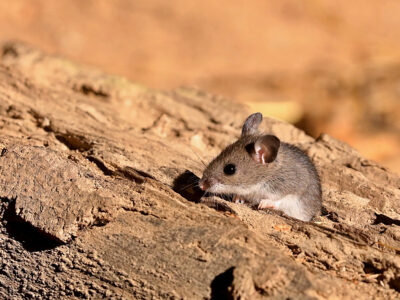
Deer Mouse
Roughly 60 different species of deer mice range from Canada to Central America!
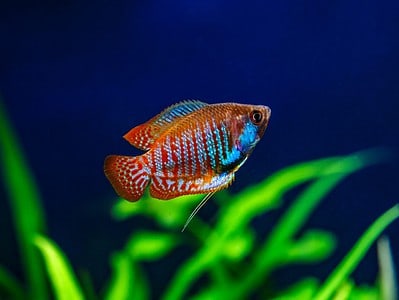
Dwarf Gourami
Dwarf gourami can live for over four years with proper care.

Animal by Letter Lists
- Animals that Start with A
- Animals that Start with B
- Animals that Start with C
- Animals that Start with D
- Animals that Start with E
- Animals that Start with F
- Animals that Start with G
- Animals that Start with H
- Animals that Start with I
- Animals that Start with J
- Animals that Start with K
- Animals that Start with L
- Animals that Start with M
- Animals that Start with N
- Animals that Start with O
- Animals that Start with P
- Animals that Start with Q
- Animals that Start with R
- Animals that Start with S
- Animals that Start with T
- Animals that Start with U
- Animals that Start with V
- Animals that Start with W
- Animals that Start with X
- Animals that Start with Y
- Animals that Start with Z
Thank you for reading! Have some feedback for us? Contact the AZ Animals editorial team.







